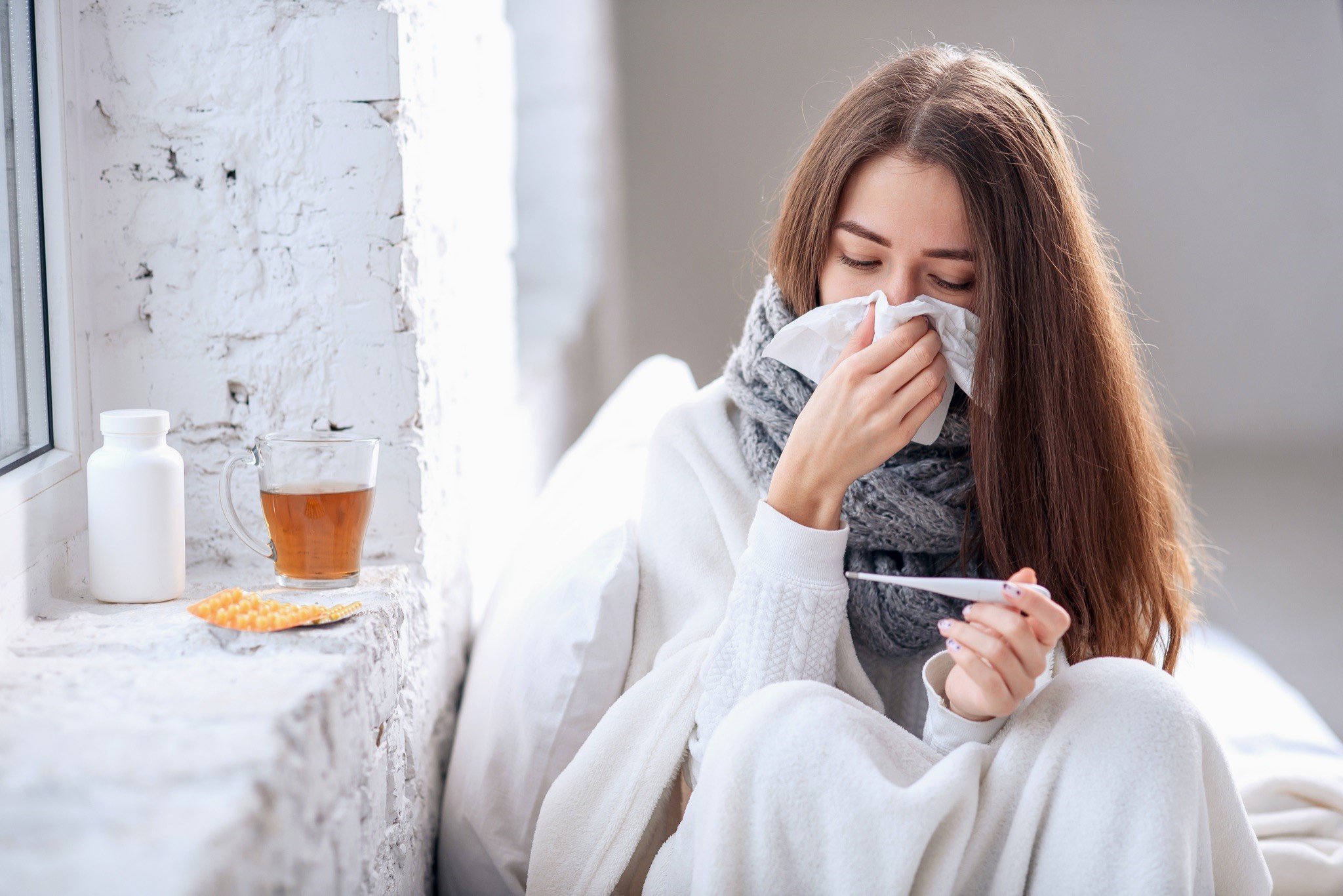Oh, allergy season. The time of year when millions of us experience the wrath of the flowers and trees blooming all around us, which causes symptoms such as runny nose, itchy, watery eyes and stuffiness.
Sometimes, symptoms can become so strong that we may begin to question whether we are living with seasonal allergies or something more serious, like the flu.
According to the CDC, even with the widespread availability and recommendation to get a flu vaccine, an estimated 9 million to 41 million people annually have become infected with the flu from 2010 to 2020. While the vaccine is an excellent deterrent against contracting the flu or experiencing severe symptoms, it does not guarantee complete protection.
Although both allergies and the flu can hinder our daily life and routine, knowing which one you are experiencing is essential to getting the proper treatment to mitigate symptoms sooner and breathe a sense of relief for the long haul.
Let’s explore the difference between the flu and seasonal allergies.
Flu vs. Seasonal Allergies
On average, about 8% of the U.S. population gets sick with the flu each year, while 30% of adults and 40% of children experience seasonal allergies.
One of the most significant differences between the flu and allergies is the symptoms you may experience. While some symptoms between the two are similar, they are not the same in severity and onset.
First, though, let’s define what each one is so you better understand how you get them and precisely what they do to your body’s immune system.
What Is the Flu?
More formally known as influenza, the flu is a contagious respiratory virus that can infect a person’s nose, throat, and lungs and is caused by the influenza A or B viruses.
It is spread from one person to another by tiny droplets in the air caused by coughing, talking or sneezing.
Symptom onset from exposure to apparent symptoms averages around 2 days but can range from 1 to 4 days. Symptoms range from mild to severe and can even lead to death in rare cases.
The flu is different from other respiratory illnesses, like the common cold or COVID-19, as symptom onset is typically rapid.
What Are Allergies?
Allergies are your immune system’s overreaction to exposure to an allergen.
Seasonally, this can occur from allergens such as pollen or ragweed.
Regardless of the season, allergies can be triggered by other factors, such as exposure to mold or pet dander.
Symptoms
Although symptoms of the flu and allergies can be similar, there are some significant differences between the two respiratory-affecting illnesses.
Read over the symptom list below and see how often you may experience them with the flu vs. allergies.
| Symptoms | Flu | Seasonal Allergies |
| Cough and Chest Discomfort | Usually | Sometimes |
| Aches and Pains | Usually, often severe | Never |
| Fatigue | Usually | Sometimes |
| Itchy, watery eyes | Never | Usually |
| Sneezing | Usually | Usually |
| Runny Nose | Usually | Usually |
| Stuffy Nose | Usually | Usually |
| Sore Throat | Sometimes | Rarely |
| Fever | Usually, often high and long lasting | Never |
It’s probably allergies if:
- Your eyes are itchy and watery.
- Your symptoms seem to flare up in certain situations or seasons of the year, such as when you spend time outdoors or near pets.
- You’ve experienced symptoms for more than 1-2 weeks that remain at the same severity level.
- Symptoms become better when you’re not exposed to an allergen.
- Your mucus is thin and clear.
It may be something more serious, like the flu, if:
- You have a cough, fever, or body aches.
- Symptom onset is rapid, and symptoms change every few days.
- Your mucus changes color from clear to yellow or green.
- You have new fatigue that can easily lead to feelings of exhaustion.
- You experience severe body aches that last several days.
Treatment
Symptom review is vital, as it allows you to precisely understand what you may be experiencing and get the proper treatment sooner.
The flu and seasonal allergies are treated in different ways.
Although most people with the flu recover on their own, there are various ways to help control symptoms at home, including
- Proper hydration with clear liquids like water, juice, or soup broth
- Adequate rest
- Fever reducers
- OTC anti-inflammatories, pain relievers, and decongestants
- Throat lozenges or a saltwater gargle to relieve a sore throat
- OTC saline nasal drops or spray
- A cool-mist vaporizer or humidifier
In more severe cases, an antiviral medication may be prescribed to mitigate the severity of flu symptoms.
Treatment for allergies may include
- OTC antihistamines, decongestants and nasal sprays
- Avoiding the triggering allergen or wearing a mask when exposed.
- Modifying indoor spaces to keep allergens out
- Washing your hair and face after exposure or when symptoms are heightened
Comprehensive Care for Allergies or the Flu Close to Home
Although most cases of the flu or seasonal allergies can be treated effectively with rest, hydration, and symptom-specific medication at home, we recommend visiting our urgent care facility in Southaven if
- Your symptoms last longer than a week.
- You experience a fever for more than 3 days.
- OTC medication isn’t helping.
- You have other underlying health conditions or a compromised immune system that may be affected.
- The medication you’re taking is causing adverse side effects.
You should seek immediate emergency medical treatment for any life-threatening, flu-like symptoms such as difficulty breathing, chest pains, or high fever with accompanying symptoms such as confusion, difficulty staying awake, nausea or a rash.
Visit Getwell Urgent Care today to treat more serious flu-like symptoms. Appointments can be made ahead of time, but we welcome walk-ins seven days a week.

